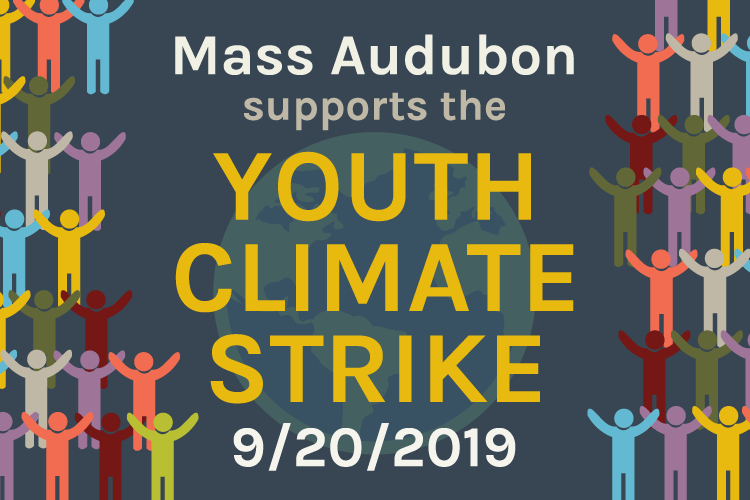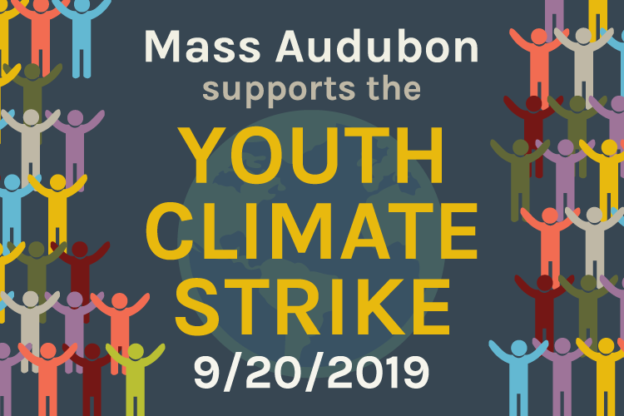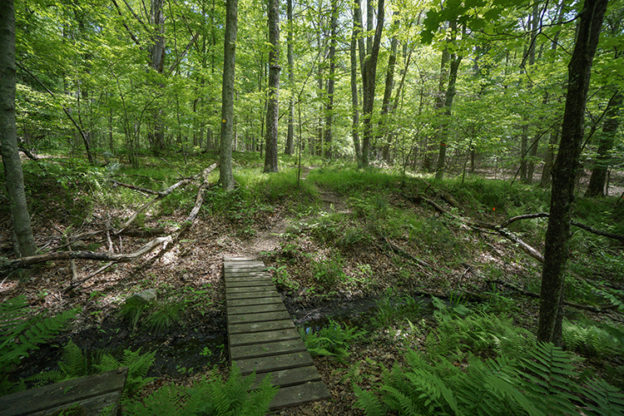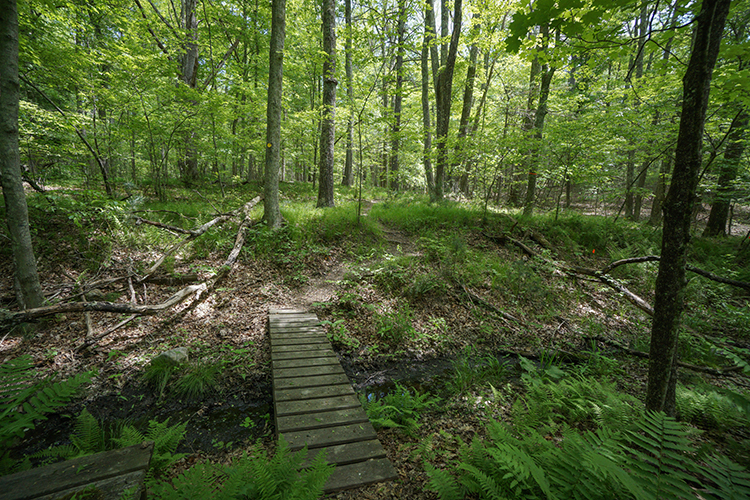On September 20, Mass Audubon will stand with millions of people of all ages around the world to amplify the voice of youth activists who understand the urgency of climate change.
We have partnered with Youth Climate Strike Massachusetts to share our support and stand in solidarity with youth and adults who are walking out of their classes, jobs, and homes to demand our leaders take action on defining issue of our time–climate change.

The Science is Clear
Climate change is harming natural and human communities like never before. From hotter days to stronger storms to rising seas, we see the impacts all around us. This reality has driven youth activists to take to the streets for more than a year, demanding action for the future of their planet.
Now, youth organizers are not just welcoming but urging adults to participate side-by-side with them. The strike kicks off a week of actions to elevate the need for implementing bold and urgent climate solutions.
→ September 20-27: Climate Strikes are taking place across the globe including in Boston (9/20), Northampton (9/20), and Worcester (9/27).
→ September 21: Young leaders from around the world are convening to showcase climate solutions and engage with global leaders on climate change. All of this precedes the UN Climate Action Summit in New York City
→ September 23: Global leaders are meeting as part of the UN Climate Action Summit in New York City to boost ambition and accelerate actions to implement the Paris Agreement on Climate Change.
If Not Us, Then Who? If Not now, Then When?
We know that we have the solutions needed to create a healthier, safer, and more equitable planet for all species. What we need now is to come together and use our collective power to make those solutions heard and ultimately supported.
- Find a climate strike near you and join us on September 20. Then, ask three friends or family members to join you as well.
- If you’re striking in Boston, look for the Mass Audubon table at City Hall Plaza.
- Unable to miss work? Check out these suggestions from youth organizers on how you can offer support from your workplace.
- Talk about climate change and the strike with family, friends, and coworkers. And remember to be an adult ally in every climate conversation you have. Lead by example for other parents, adults, and even teachers.
The moment to show up for nature and the future of all young people is now.
Will you be standing and striking? If so, share where in the comments.




